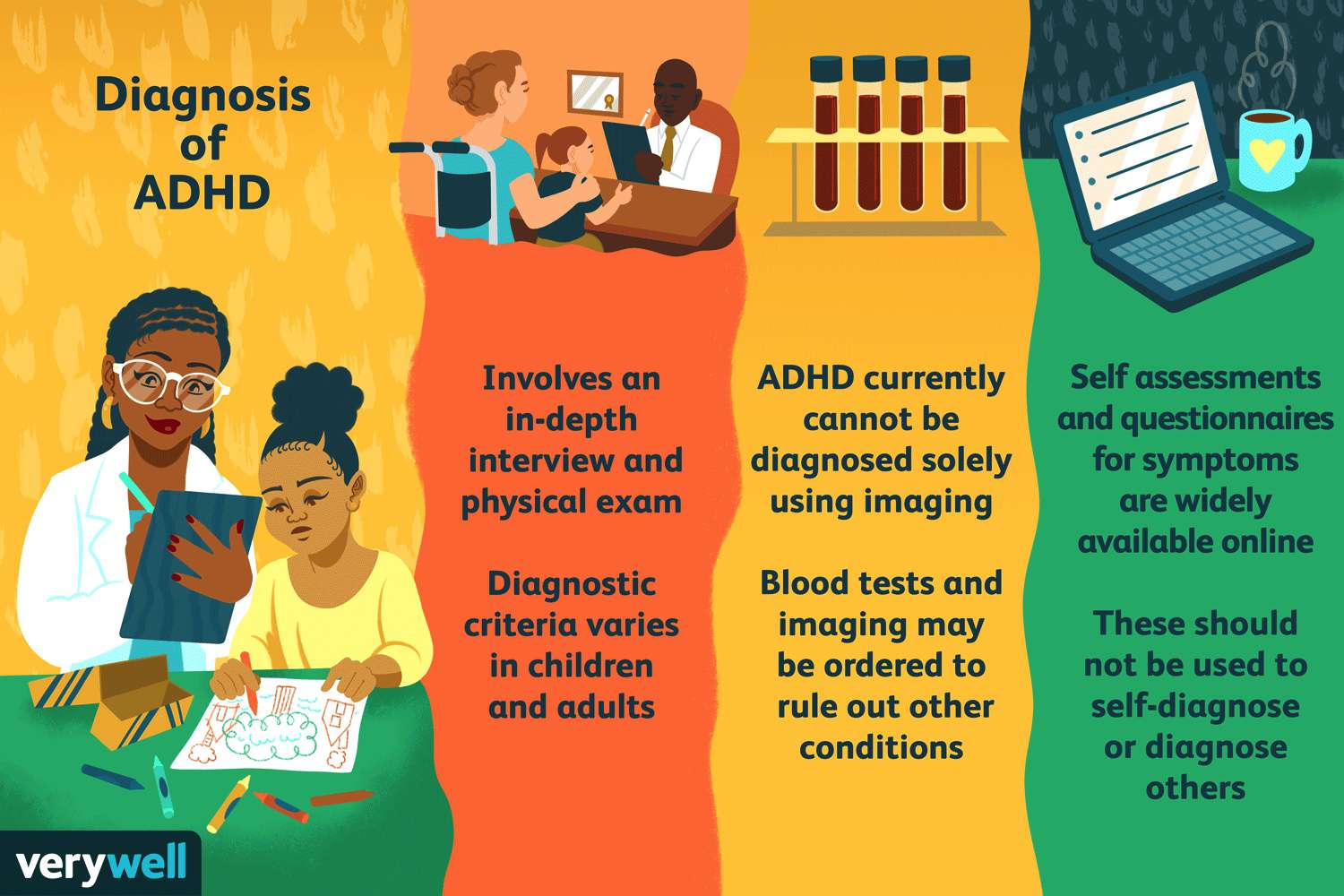Adult ADHD: Diagnosis, Treatment, And Support Resources

Table of Contents
Understanding Adult ADHD Symptoms and Diagnosis
Adult ADHD symptoms often differ from those observed in childhood. While hyperactivity may be less pronounced, other challenges can significantly impact daily functioning. Accurate diagnosis is the first step towards effective management.
Common Symptoms in Adults:
Adult ADHD symptoms can manifest in various ways, making diagnosis sometimes challenging. Common symptoms include:
- Difficulty focusing and prioritizing tasks: Struggling to concentrate on tasks, easily distracted, and experiencing difficulty completing projects. This can lead to procrastination and missed deadlines.
- Poor time management and organization skills: Chronic lateness, disorganization, and difficulty managing schedules are common hallmarks of Adult ADHD.
- Impulsivity and difficulty controlling emotions: Acting without thinking, making rash decisions, and struggling to regulate emotional responses are frequently reported.
- Hyperactivity (often less pronounced than in childhood): While excessive physical activity may be less evident in adults, internal restlessness and fidgeting are common.
- Problems with working memory: Difficulty retaining information, remembering appointments, and recalling recent events can significantly impact daily life.
- Challenges with emotional regulation: Experiencing intense emotional swings, difficulty managing frustration, and increased irritability are common.
The Diagnostic Process:
Diagnosing Adult ADHD involves a multi-step process to ensure accuracy.
- Self-assessment: Initial screening often involves completing questionnaires like the Adult ADHD Self-Report Scale (ASRS-v1.1). This helps identify potential symptoms and warrants further evaluation.
- Professional evaluation: A comprehensive assessment by a psychiatrist or psychologist specializing in ADHD is crucial. This typically involves a thorough interview, reviewing medical history, and possibly neuropsychological testing.
- Rule out other conditions: Other conditions, such as anxiety disorders, depression, and learning disabilities, can mimic ADHD symptoms. A thorough evaluation aims to rule out these co-occurring conditions.
- Diagnostic criteria: The diagnosis is based on the Diagnostic and Statistical Manual of Mental Disorders, 5th Edition (DSM-5) criteria for ADHD, which outlines specific symptom patterns and duration.
Effective Treatment Options for Adult ADHD
Effective management of Adult ADHD often involves a combination of medication and therapy, tailored to individual needs.
Medication Management:
Medication can significantly improve focus, attention, and impulse control.
- Stimulants (e.g., methylphenidate, amphetamine): These medications increase the levels of dopamine and norepinephrine in the brain, improving focus and reducing impulsivity. Potential side effects can include insomnia, decreased appetite, and increased heart rate.
- Non-stimulants (e.g., atomoxetine, guanfacine): These offer an alternative for individuals who don't respond well to stimulants or experience significant side effects. They work differently in the brain but achieve similar benefits.
- Finding the right medication and dosage: It's crucial to work closely with a healthcare professional to find the most effective medication and dosage. This may involve trying different medications and adjusting dosages until optimal results are achieved.
Therapy and Counseling:
Therapy plays a vital role in developing coping mechanisms and improving overall well-being.
- Cognitive Behavioral Therapy (CBT): CBT helps identify and change negative thought patterns and behaviors that contribute to ADHD symptoms. It teaches strategies for managing impulsivity, improving organization, and enhancing emotional regulation.
- Behavioral therapy: This focuses on practical strategies to improve organizational skills, time management, and impulse control. Techniques like time blocking, prioritization matrices, and reward systems are commonly used.
- Support groups: Connecting with others who understand the challenges of Adult ADHD can provide invaluable emotional support, shared experiences, and practical coping strategies.
Lifestyle Adjustments for Managing Adult ADHD:
Lifestyle changes can significantly complement medication and therapy.
- Regular exercise: Physical activity improves focus, reduces stress, and enhances mood.
- Mindfulness and meditation: These practices can help improve attention and emotional regulation.
- Healthy diet: A balanced diet supports brain function and overall well-being.
- Adequate sleep: Sufficient sleep is crucial for cognitive function and emotional stability.
- Organization techniques: Implementing organizational strategies such as time blocking, prioritization matrices, and using digital tools can significantly improve productivity and reduce stress.
Finding Support and Resources for Adult ADHD
Numerous resources are available to help individuals with Adult ADHD navigate their diagnosis, treatment, and daily life.
Support Groups and Communities:
Connecting with others facing similar challenges provides valuable support and a sense of community.
- Online forums and communities: Numerous online platforms offer opportunities to connect with others, share experiences, and access valuable information.
- Local support groups: Many communities offer in-person support groups where individuals can connect with others and share coping strategies.
- Sharing experiences and coping strategies: The collective wisdom and experiences within these communities can be incredibly helpful in navigating the challenges of Adult ADHD.
Finding Qualified Professionals:
Seeking professional help is crucial for effective management of Adult ADHD.
- Psychiatrists specializing in ADHD: Psychiatrists can prescribe medication and monitor its effectiveness.
- Psychologists experienced in treating ADHD: Psychologists can provide therapy and support in developing coping strategies.
- ADHD coaches and therapists: These professionals offer specialized coaching and therapy tailored to the specific needs of individuals with ADHD.
Online Resources:
Several reputable websites and organizations offer valuable information and support. (Note: This section would ideally include links to reputable organizations like CHADD.)
Conclusion:
Adult ADHD is a manageable condition with effective treatment options and substantial support available. Understanding the symptoms, pursuing a proper diagnosis, and actively engaging in treatment, including medication and therapy, are key steps toward improving your life. Don't hesitate to seek professional help. Take control of your Adult ADHD today and explore the available resources to find the support you need to thrive. Start your journey towards better management of your Adult ADHD now!

Featured Posts
-
 6 Year Olds Safety At Risk Richmond Mans Gun Sentence
Apr 30, 2025
6 Year Olds Safety At Risk Richmond Mans Gun Sentence
Apr 30, 2025 -
 Updated Yate Train Timetable Bristol And Gloucester Connections
Apr 30, 2025
Updated Yate Train Timetable Bristol And Gloucester Connections
Apr 30, 2025 -
 Gripna Vlna Prof Iva Khristova Otkhvrlya Opaseniyata
Apr 30, 2025
Gripna Vlna Prof Iva Khristova Otkhvrlya Opaseniyata
Apr 30, 2025 -
 Dolda I Skuggorna Helena Och Ivas Erfarenhet Av Skolskjutningen
Apr 30, 2025
Dolda I Skuggorna Helena Och Ivas Erfarenhet Av Skolskjutningen
Apr 30, 2025 -
 Amanda Owens Heartbreaking Farewell To Our Yorkshire Farm
Apr 30, 2025
Amanda Owens Heartbreaking Farewell To Our Yorkshire Farm
Apr 30, 2025
Latest Posts
-
 Dr Jessica Johnsons Analysis Of Yates Contribution To Black History
Apr 30, 2025
Dr Jessica Johnsons Analysis Of Yates Contribution To Black History
Apr 30, 2025 -
 Planificacion Del Asiento Para Un Funeral Papal Una Empresa Compleja
Apr 30, 2025
Planificacion Del Asiento Para Un Funeral Papal Una Empresa Compleja
Apr 30, 2025 -
 Exploring Black History Through Yates Insights From Dr Jessica Johnson
Apr 30, 2025
Exploring Black History Through Yates Insights From Dr Jessica Johnson
Apr 30, 2025 -
 Seating Plan For A Papal Funeral A Complex Undertaking
Apr 30, 2025
Seating Plan For A Papal Funeral A Complex Undertaking
Apr 30, 2025 -
 Family Alleges Inmate Died In San Diego Jail After Over An Hour Of Untended Torture
Apr 30, 2025
Family Alleges Inmate Died In San Diego Jail After Over An Hour Of Untended Torture
Apr 30, 2025
